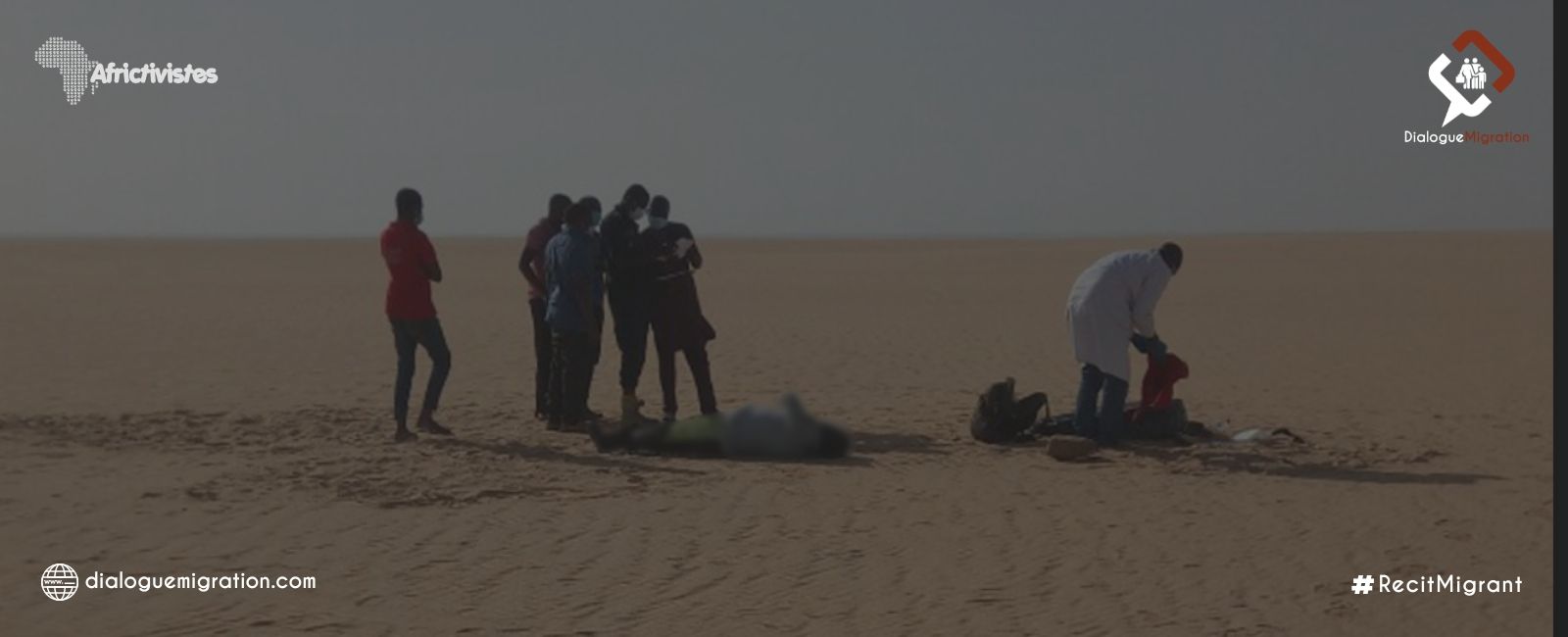

Movement is a natural act. Human beings move as naturally as possible, without any conditions. Thus, since the dawn of time, humans have felt free to move. But the so-called modern states have erected barriers to prevent citizens of other countries from going to their homes in the name of protectionism based purely on their selfish interests. From walls to barbed wire without forgetting coast guards, difficulties in obtaining travel documents (visas)… All the conditions to prevent others from coming to one’s home are met. The latter are forced to pass through the desert or on the sea on makeshift boats at the risk of their lives. And there have been deaths in the Mediterranean or in the Sahara desert. How many are there? The statistics are scary!
Five hundred (500) is the number of deaths recorded by the International Organization for Migration (IOM) in a global statement dating from November 2020. At the same time, according to IOM, off the coast of Cape Verde, the engine of a boat exploded and about sixty people perished.
During May 2023, IOM quoting the Missing Migrants Project (MMP) report recorded 148 deaths and disappearances on migration routes in the West and Central Africa region. A higher figure than that of 2021,,, which was 110 for the same period, according to IOM. IOM highlights that in May 2023, in North and West Africa, 43 shipwrecks were recorded along the Atlantic Route from West Africa to the Canary Islands. This resulted in the deaths of at least 559 people at sea, half of whom were presumed drowned because their remains could not be recovered. These figures are relatively down from 2021 with 1,126 deaths in 74 shipwrecks.
The Organization also points out that these statistics are often far from reality as boats are reported in distress but no survivors are reported. IOM notes that “more than half of the people who lost their lives on the Canary Islands route last year were West and Central African nationals coming from Morocco and Western Sahara”. In addition, says the organisation, “most of the deaths documented on this road remain unidentified: 84% of people who died on the Canary Islands route in 2022 (467 people) are listed without a country of origin”.
IOM survivor survey reveals that one in 100 of the 12,000 migrants surveyed in Mali and Niger in 2022 witnessed a death during their journey. IOM said this trend is worrying given that more than 380,000 migratory movements were observed at the same interview sites in the last quarter of 2022 alone.
Between 2014 and 2022, the Missing Migrants Project (MMP) recorded 2,902 deaths and disappearances of migrants on routes within and from West and Central Africa, including 457 women, 1,035 men and 275 children.
According to the NGO Caminando Fronteras, “more than 11,000 people have died since 2018 in their attempt to reach Spain from the African continent. That’s six a day.” It provides more details on their origin: “between the beginning of 2018 and the end of November 2022, 11,286 people died from 31 countries in Africa but also from the Middle East and Asia. Among them, 1,272 women and 377 children.”
In June 2022, the Chairperson of the African Union (AU) Commission, Chadian, Moussa Mahamat Faki, reacted to the deaths of dozens of migrants at the borders of Morocco and Spain: “I express my deep emotion and concern at the violent and humiliating treatment of African migrants trying to cross the international border from Morocco to Spain, and the ensuing violence, which resulted in the deaths of at least 23 people and the injury of many others.”


